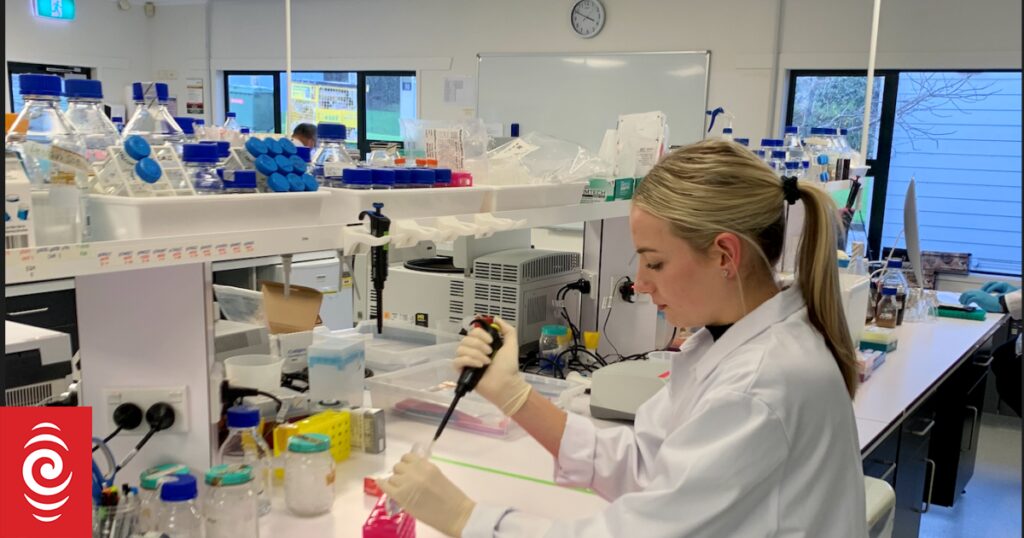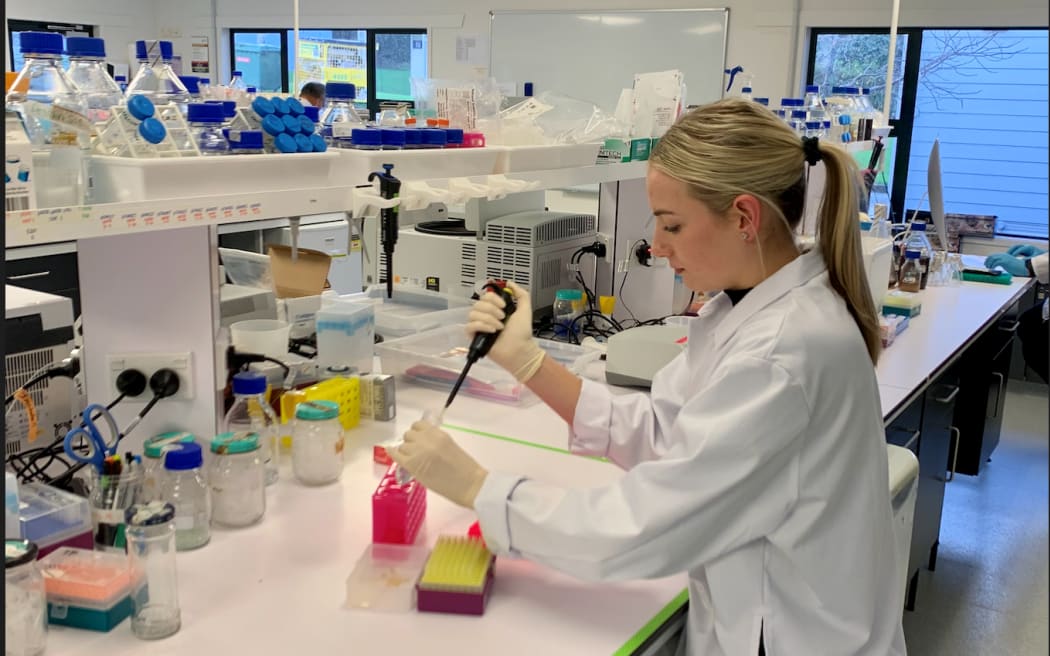Daisy Lab co-founder Emily McIsaac pictured in 2022.
Photo: Supplied
A company developing dairy proteins in the laboratory – without cows – has been given the green light to expand, as it endeavours to bring its alternative proteins to market.
Auckland-based Daisy Lab has spent the past few years developing dairy-identical proteins to be used as food and beverage ingredients.
It uses genetically modified yeast and a process called precision fermentation to develop them – without a single cow being used in the process.
This week, the company was granted approval from the Environmental Protection Authority to scale up production 500-fold from its existing allowances.
Co-founder and chief scientific officer Nikki Freed said the approval was a critical step in their progress – but the technology was more familiar than people realised.
She said precision fermentation was used in making rennet for cheese-making, vanilla flavouring, stevia and also insulin.
“Many people don’t understand how we’re already using precision fermentation in many of the foods that people are already consuming today,” Freed said.
“What is new is using it for proteins that are traditionally found in milk, so whey and casein and lactoferrin.”
Daisy Lab co-founders from left: Irina Miller, Dr Nikki Freed and Emily McIsaac.
Photo: Supplied
Last month, the University of Otago and Lincoln University released a joint report, Protein Futures: Future scenarios for land use in Aotearoa New Zealand, which said New Zealand needed to prepare for changes to its food export markets as technology advancements led to a growth in alternative proteins.
Biotechnology and dairy companies globally have been [https://www.rnz.co.nz/news/business/512554/scientists-making-dairy-free-cream-milk-powder-from-seeds
dabbling with precision fermentation technology] themselves in recent years – including dairy co-op Fonterra which teamed up with global bio-tech business DSM.
One of Daisy Lab’s shareholders is Waikato dairy co-op, Tatua Dairy Company.
Freed said the company wanted to commercialise the animal-free dairy proteins to supply to food and beverage companies, including those in dairy wanting to switch to precision fermentation whey.
“So what we see is selling our protein products to large corporations that are using these ingredients already, and they might be attracted to that from a sustainability standpoint. It’s much better in terms of greenhouse gas emissions.
“We can reduce greenhouse gas emissions seen with traditional dairy by up to 97 percent,” she said.
Company not taking on conventional dairy market
Freed said the company was there to bring more options to market, not to take on the dairy industry as a whole – and the more people using precision fermentation, the better.
“Obviously going up against the powerhouse of Fonterra, and they’re collaborating with DSM, so they’re working in the Netherlands to do this work.
“We’re really focused on having our business here in New Zealand using all of the infrastructure and all the knowledge,” Freed said.
Daisy Lab needed approval from the EPA to expand because it used genetically modified yeast in the process.
But the regulator’s general manager of hazardous substances and new organisms, Dr Chris Hill, said it was safe for consumption as the genetically modified organisms were removed in the process.
“Precision fermentation has the potential to offer significant savings in land use, water use, and reduction in carbon footprint.
“Similar work is being undertaken internationally and we are confident this work poses no risk to human health.”
Industry in start-up phase
AgResearch senior research scientist Dr Scott Knowles said the industry was still in a start-up phase, with many enterprises struggling to build manufacturing capacity and sourcing sustainable feed stocks for the micro-organisms.
But he said there was exciting potential for these new generation methods to enrich and diversify food production.
“The yeasts being cultivated are common, low-risk organisms with a long history in research, and all proposed work remains confined within certified laboratories,” he said.
“[The EPA approval] is a welcome advance in capability that will grow our understanding of the opportunities with this technology in a New Zealand context,” Knowles said.
“It adds to research that is already being carried out safely and securely with GMOs in facilities around the country.”
Daisy Lab was now fundraising for its first pilot facility to move out of its leased laboratory location in Parnell.
>>> Read full article>>>
Copyright for syndicated content belongs to the linked Source : RNZ – https://www.rnz.co.nz/news/national/517062/daisy-lab-company-creating-cow-less-dairy-products-given-green-light-to-expand

